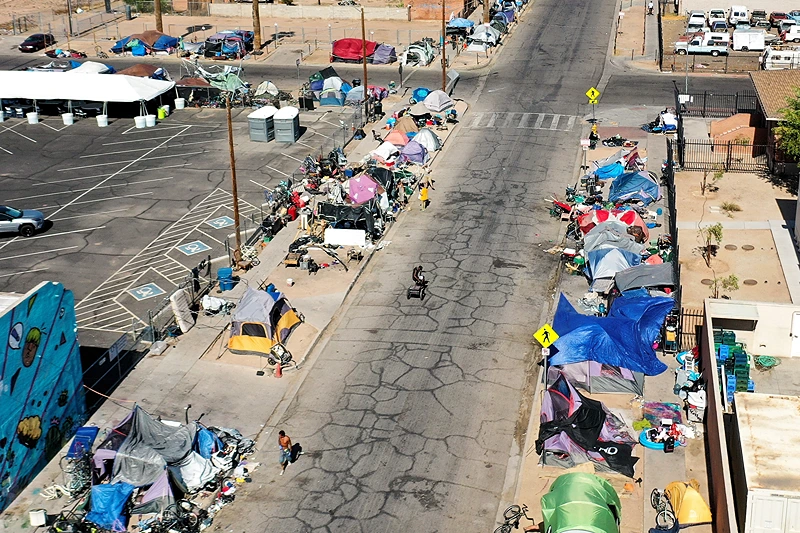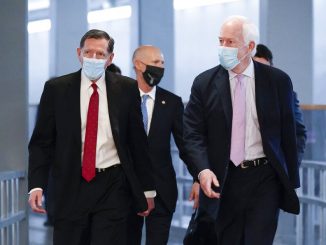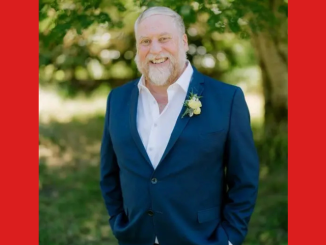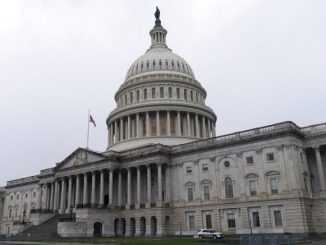

OAN Brooke Mallory
UPDATED 6:34 PM – Monday, May 8, 2023
The city of Phoenix, Arizona, is being sued by more than a dozen people who live and work near the largest homeless camp in the state over its “failure to address, and its exacerbation of the growing homelessness crisis within the city.”
Advertisement
They argued that the city does not offer shelter or resources to those who are homeless and does not enforce “quality of life ordinances” that forbid activities like loitering, intoxicated behavior, and drug use.
“The city’s policies are not rationally designed to address any of the social ills facing the residents of the Zone and are exacerbating rather than alleviating their problems,” residents claimed in the lawsuit.
The Human Services Campus, which holds the largest homeless shelter in the state, is surrounded by the sizable homeless encampment known as “the Zone,” which is located just west of downtown.
About 500 individuals were residing in tents in the Zone prior to the COVID-19 outbreak. The campus reported that there were currently close to 900 residents, though this number varies and has occasionally reached 1,000.
Tensions between the community, the city, and the shelter had existed for a while now, but they reached a breaking point in 2018 when the 9th U.S. Circuit Court of Appeals invalidated a legislation in Boise, Idaho, that outlawed “urban camping.”
After the ruling, Phoenix reportedly reduced the enforcement of its own urban camping restrictions, which is when the Zone allegedly started to significantly expand, according to the lawsuit.
The city would be required to address the Zone, either by moving it to a different location, setting up a planned camping place where cleanliness is maintained, or offering indoor shelter to people living on the streets. The residents sought the court’s permission to declare the Zone a public nuisance.
They also asked the court to declare the city’s involvement in “creating, expanding, operating and/or maintaining the Zone” unconstitutional.
The lawsuit’s documents were made available to the public before the city had a chance to analyze the accusations, according to Phoenix spokesperson Dan Wilson.
Wilson claimed the city “is committed to addressing the needs of all residents and property owners as we work with local and regional partners to address the complex issues surrounding those experiencing homelessness.”
“No neighborhood should bear the weight of Maricopa County’s homelessness epidemic,” according to councilwoman Yassamin Ansari.
During her first year in office, she fought to bring refuge to other parts of the city.
Phoenix now must permanently clear the Zone after a judge ruled in favor of the neighbors who sued the city, calling the encampment, next to a non-profit social services hub and blocks from the state Capitol and the city’s Major League Baseball stadium, an illegal “public nuisance.”
According to the plaintiffs’ attorneys, their case could serve as a template for individuals seeking to compel other U.S. communities to remove such encampments. However, the possibility disturbs activists for the homeless, who claim that it only obscures a serious issue at a time when skyrocketing home prices and an inflated economy have pushed households to the breaking point.
The director of the city’s Office of Homeless Solutions told the press that as Phoenix officials get ready to start removing tents from the Zone this week, they are also rushing to build safe options for the displaced.
They are using state money to rent hotel rooms and vacant buildings to turn into shelters, and they are also creating an outdoor campground with security, restrooms, and hand-washing stations.
However, they won’t be accessible straight away.
For the time being, the group of aid workers has intensified its long-standing effort to try to get residents off the streets.
“We have to move fast… We have to come up with a plan,” said Nette Reed, a volunteer and leader of the Street Outreach Team for Phoenix’s Human Services Campus.
The Old Station Sub Shop, located nearby where the camp appeared, has been owned by Debbie and Joe Faillace for more than 30 years. When employees arrive at work, they usually find human feces, property damage, and drug paraphernalia, they claimed.
“There’s just a complete lawlessness, and it’s getting worse,” Debbie Faillace said. “We want our neighborhood back. We want to feel safe.”
According to annual counts managed by the Maricopa Association of Governments, the Phoenix area has about half as many shelter beds as people who are experiencing homelessness, a population that has increased 46% since 2019 amid the housing crisis and the COVID-19 pandemic.
Many people who live in the Zone claim that they can’t afford rent, despite having jobs or receiving government aid. Residing out in front of the nonprofit Human Services Campus, they were able to quickly access a secure facility with around 900 shelter beds, that were usually full, as well as aid like food, water, and medical care, all essentials during Arizona’s sweltering summers.
According to county officials who spoke to the press, more than 700 homeless people died in Maricopa County in Phoenix last year, a 23% increase from 2020.
According to Rachel Milne, director of Phoenix’s Office of Homeless Solutions, the Zone clearing, which is scheduled to begin on Wednesday, would be gradual and fitting with local initiatives to find alternatives for its homeless community.
“The city’s approach will be to take it one step at a time, one block at a time, one group of people at a time, making sure that we are able to offer those 50 or so people in that block a variety of different solutions, a variety of different places to go, all of which have the services that they will need to keep them safe and healthy… It’s safer certainly than where they are now,” Milne said.
Stay informed! Receive breaking news blasts directly to your inbox for free. Subscribe here. https://www.oann.com/alerts





Be the first to comment